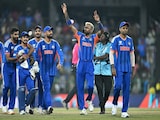The government notification on demonetisation was "unlawful" and the process of banning all currency notes of Rs 1,000 and Rs 500 could not have been initiated by the Centre, justice BV Nagarathna said today in her strong dissent after a Supreme Court Constitution bench, with 4:1 majority, upheld the demonetisation decision by the Narendra Modi-led Centre. She called the November 8, 2016 notification of the Centre "unlawful" and agreed with the petitioners challenging the notification, that as per section 26 of the Reserve Bank of India Act, the central board of the RBI should have independently recommended demonetisation, and it should not have been done through the advice of the government. There was no independent application of mind by the RBI, she held.
"In my considered view, action of demonetisation by November 8 notification was unlawful. But status quo ante cannot be restored now since it was in 2016," she said, adding that demonetisation was "an exercise of power, contrary to law, and therefore unlawful".
The manner in which it was implemented was not in accordance with law, she said, adding that she is not questioning the 'noble objectives' of the exercise itself, but only the legal viewpoint.
"Demonetisation was, beyond a pale of doubt, well-intentioned. Best intention and noble objects are not under question. The measure has been regarded as unlawful only on a purely legal analysis, and not on the objects of demonetisation," she said, further calling the decision "well-intentioned and well thought of". It targeted evils such as black money, terror funding, and counterfeiting, she added.
The crux of the argument by petitioners was "as per RBI Act, recommendation for demonetisation should originate from the board of the Reserve Bank of India" but in this case, Centre wrote a letter to RBI on November 7 advising for such a recommendation, she said.
Justice Nagarathna also held that, like previous instances, Demonetisation could have been initiated through an Act of Parliament and not by an executive notification.
"After perusing the documents and records submitted by Centre and RBI, phrases like "as desired by Centre government" shows there was no independent application of mind by RBI," Justice Nagarathna said.
The majority opinion was that the Centre is required to act in consultation with the Reserve Bank of India (RBI) and there is an "inbuilt safeguard". The four judges noted that there was consultation between the two for six months.
Fifty-eight petitions were filed in the Supreme Court challenging the notes ban, arguing that it was not a considered decision of the government and should be struck down by the court.
The government had argued that the court cannot decide a matter when no tangible relief can be granted. It would be like "putting the clock back" or "unscrambling a scrambled egg", the centre said.















